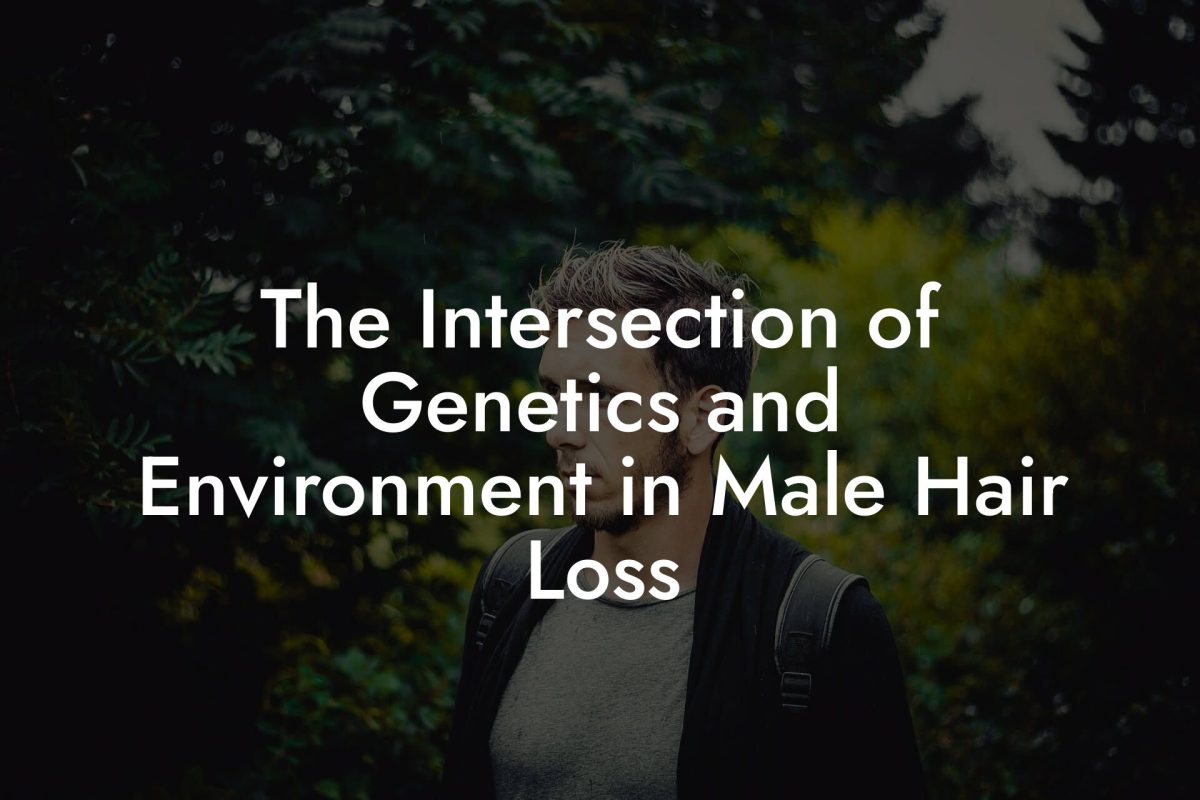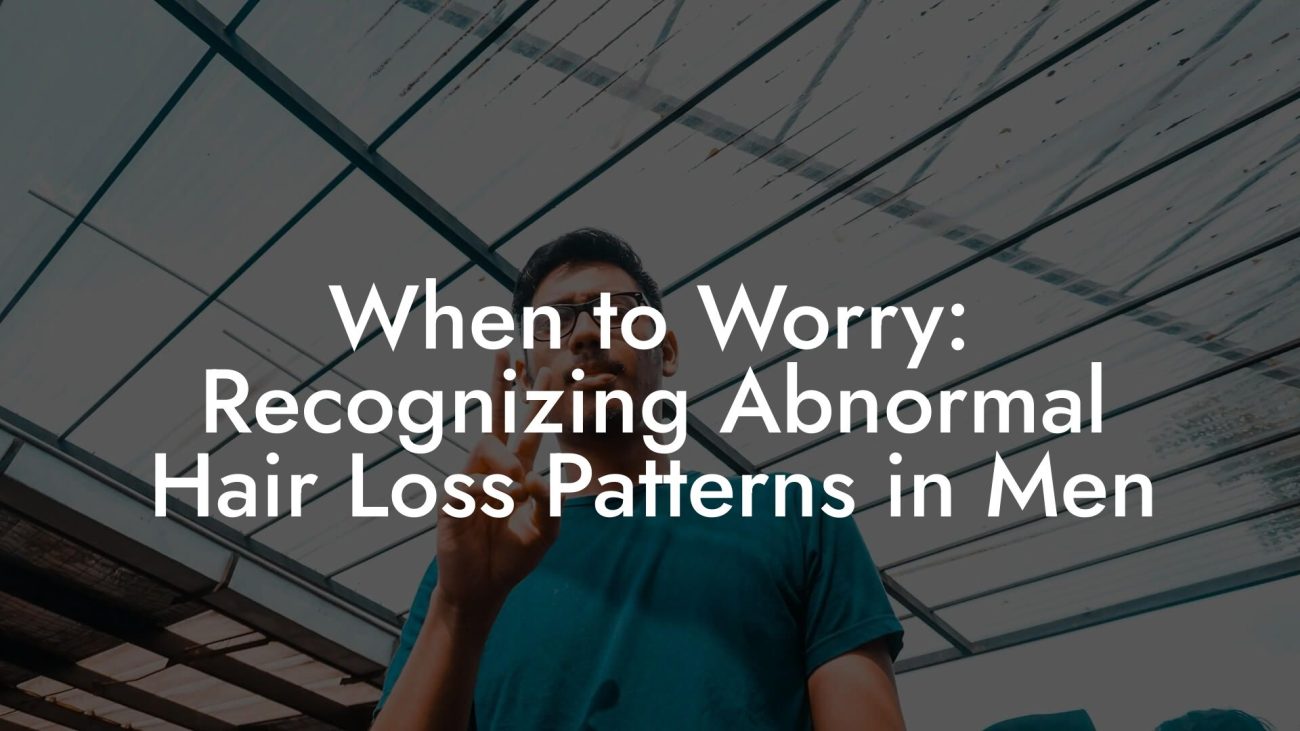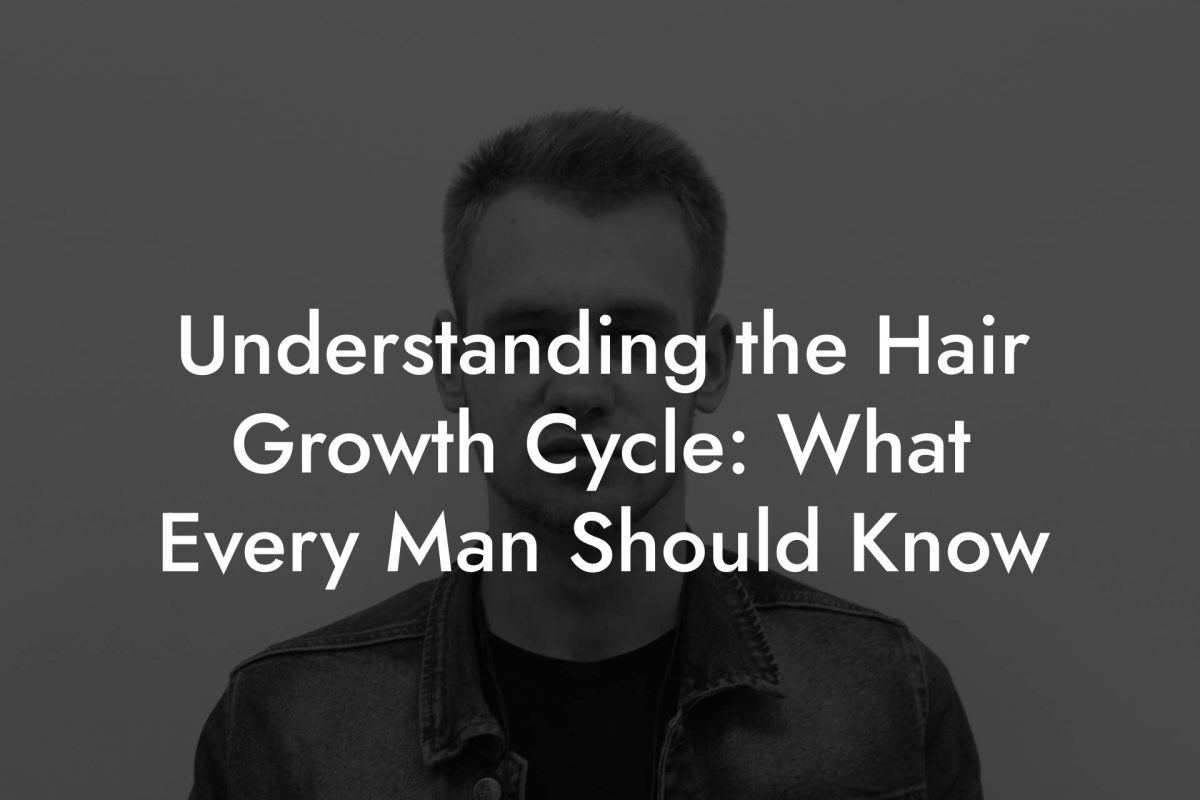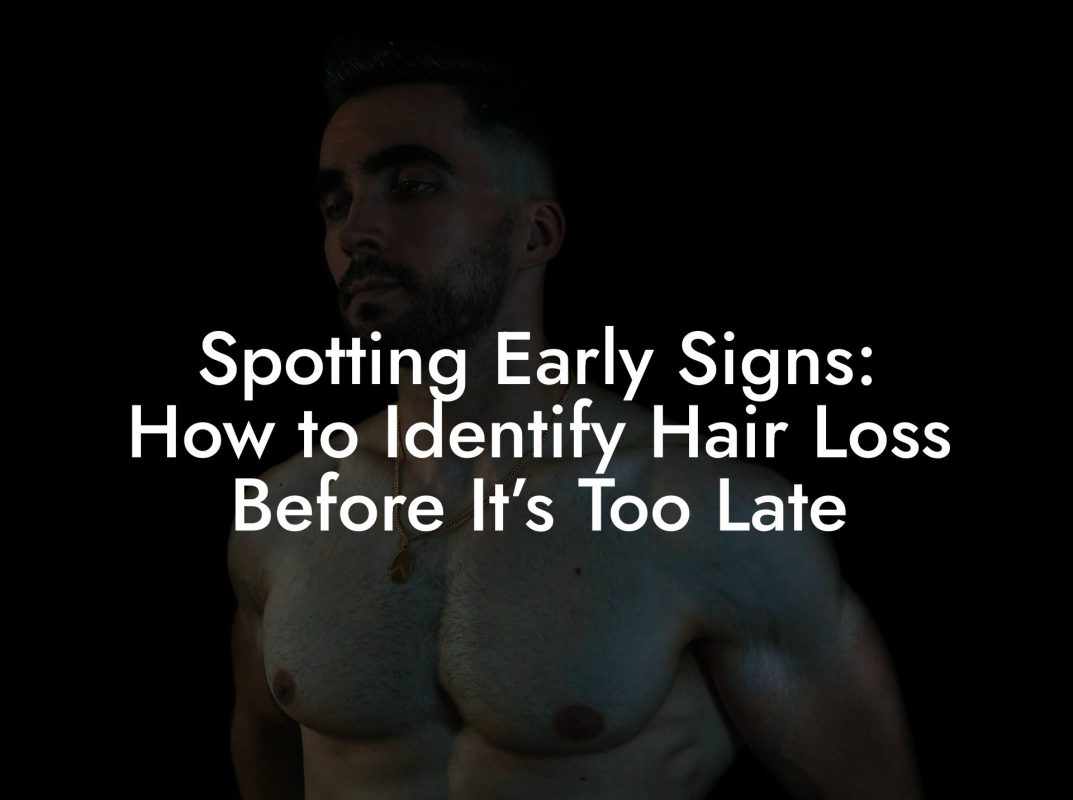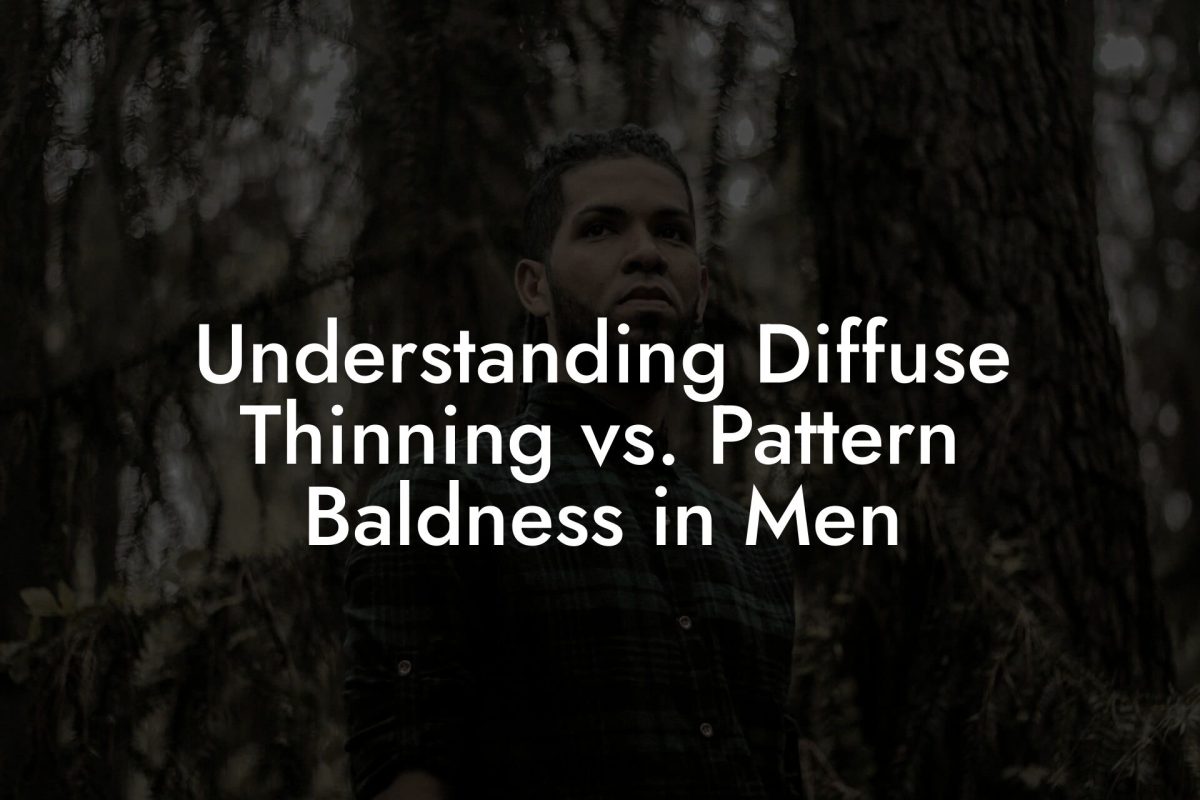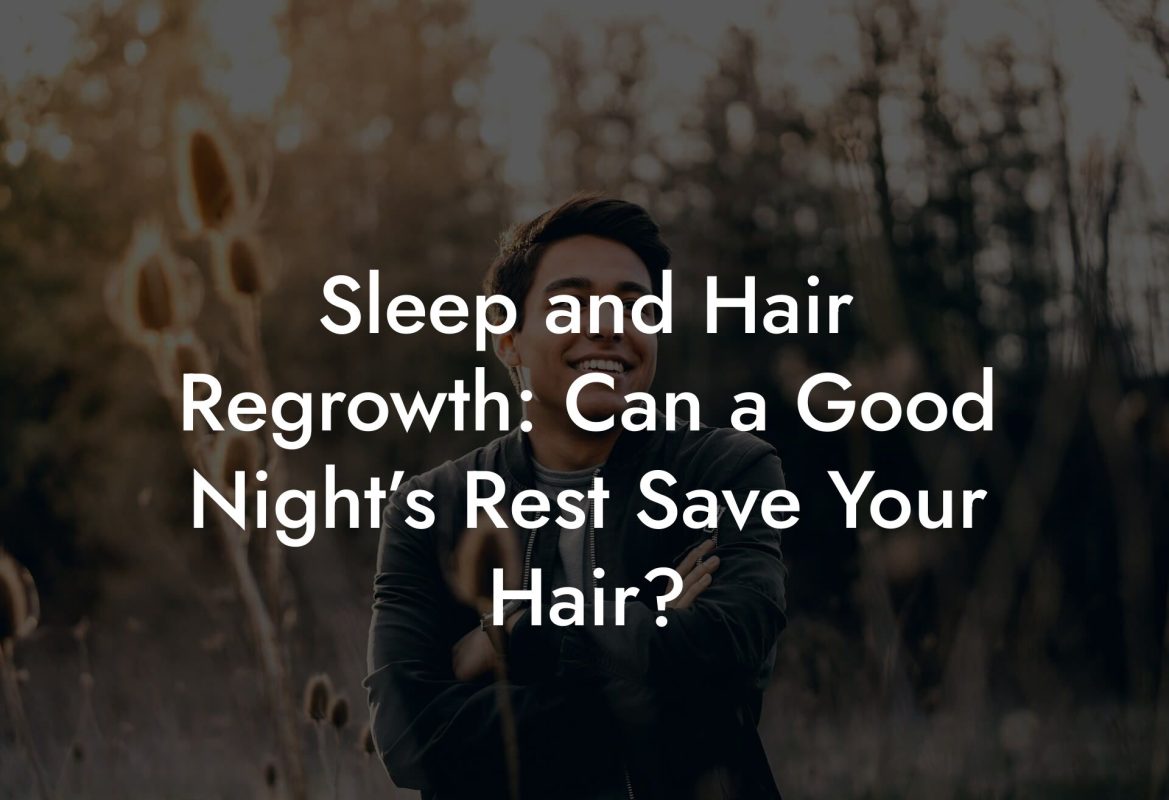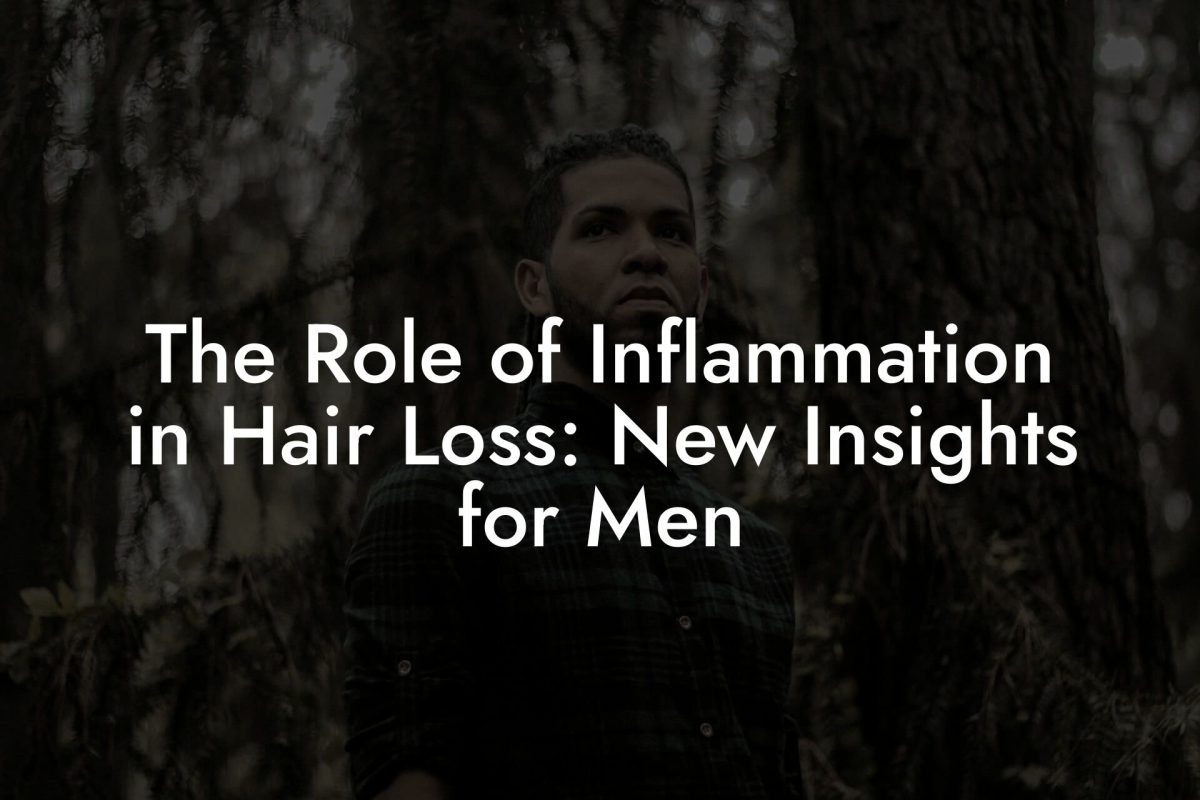Hair Loss Library
Autoimmune Disorders and Hair Loss: What Men Need to Know
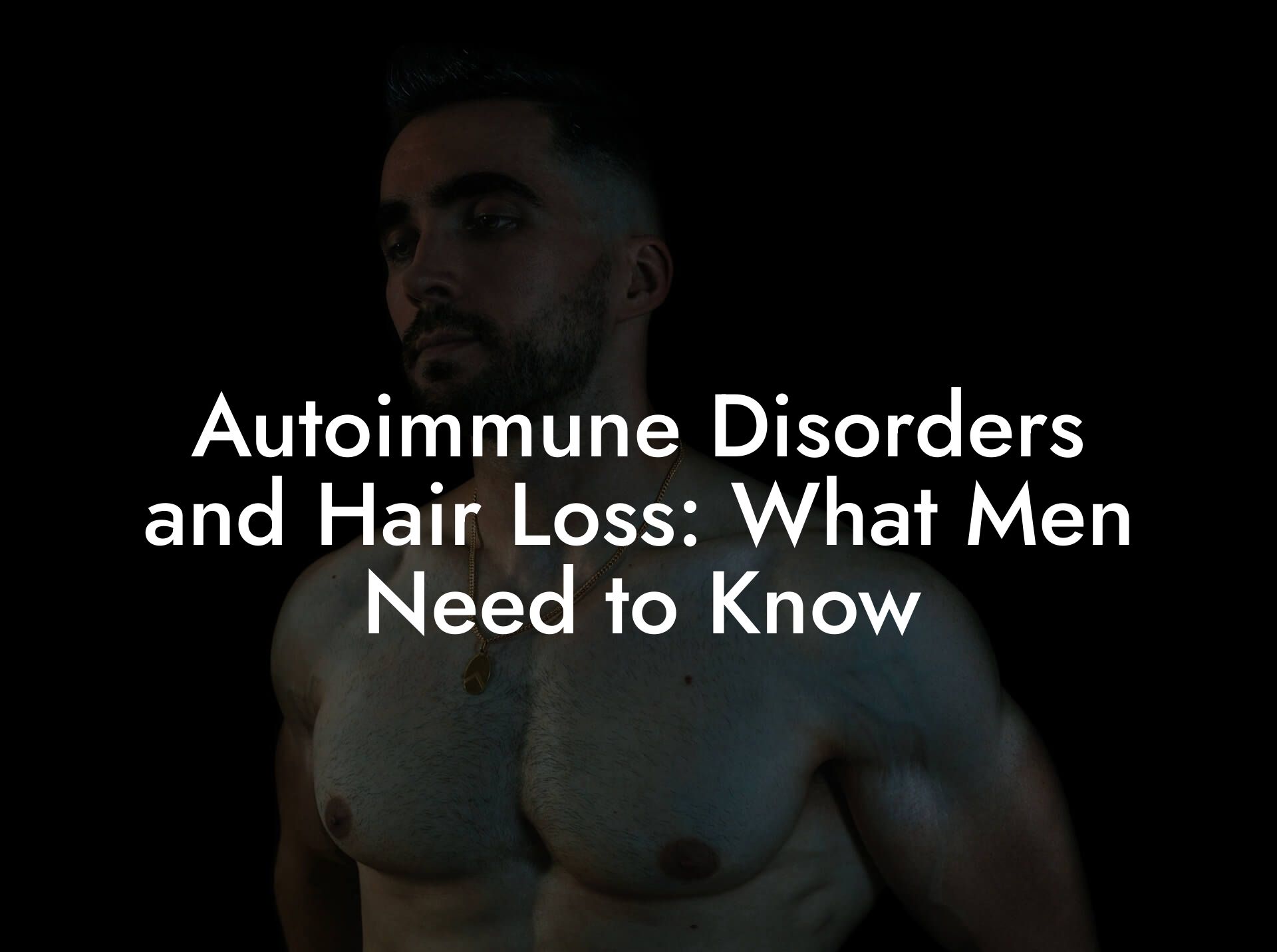
Ever wonder why your once luscious mane seems to be playing a disappearing act, leaving you with more scalp than style? If you’ve recently found yourself pondering whether autoimmune disorders are conspiring against your hair, you’re not alone. In today’s modern world, where every strand of hair feels like an asset, understanding the link between autoimmune conditions and hair loss is essential—especially for men who want to reclaim their hair confidence without enduring awkward doctor visits or breaking the bank.
What Are Autoimmune Disorders, Anyway?
Autoimmune disorders are like an overzealous bouncer at the club—mistakenly targeting friend instead of foe. In a healthy body, your immune system defends you against harmful invaders like bacteria and viruses. However, in autoimmune conditions, there’s a mix-up: the immune system starts attacking your own tissues. This internal turf war can result in inflammation, tissue damage, and, yes, sometimes even hair loss. Men experiencing hair loss due to autoimmune triggers might find that their body’s defense system isn’t playing fair.
Conditions such as alopecia areata, lupus, and thyroid disorders are just a few examples where your body’s self-protection mechanism misfires. Instead of keeping you in fighting shape, it can sometimes leave you with thinning hair or bald patches. And while it may sound like the start of a bad sci-fi movie plot, this is a very real—and often misunderstood—issue that deserves a closer look.
So, before you start thinking your hair is ghosting you just for fun, it’s important to understand that autoimmune disorders can be a sneaky culprit behind your hair loss woes.
The Connection: Autoimmune Disorders and Hair Loss
Here’s the scoop: your immune system is supposed to be your body’s bodyguard, but when an autoimmune disorder strikes, the rules of engagement get a bit... messy. Certain conditions, most notably alopecia areata, directly target the hair follicles, causing them to shrink or even shut down completely. This can lead to patchy hair loss that, for many men, feels akin to watching a slow-motion fade-out of their once majestic mane.
Autoimmune-related hair loss isn’t always a full-blown, permanent state. Sometimes it might appear suddenly and resolve itself—a rollercoaster ride of hair growth and shedding that leaves your reflection looking like a before-and-after commercial. The erratic nature of the condition can generate a lot of questions: "Why me?", "Is my immune system out to ruin my day?", and "Can I actually reclaim my hairline?" It turns out that, yes, you can—and knowledge is your best ally in this battle.
Men dealing with autoimmune triggers get more than just a bad hair day; they face a complex interplay of genetic, environmental, and hormonal factors. Whether you’re noticing tiny bald patches or significant thinning, understanding the underlying mechanisms can empower you to take proactive steps toward regaining control.
The Science Behind Autoimmune Hair Loss: Decoding the Mystery
Let’s break it down in plain English (with a dash of wit). Your hair follicles are not simply hair factories—they’re living structures that rely on a healthy balance of signals and nutrients. When your immune system mistakes these follicles for potential threats, it unleashes a barrage of inflammatory cytokines and immune cells. Think of it as your body launching a misguided attack on what should be a harmless neighbor.
The inflammation can disrupt the normal hair growth cycle, pushing hair follicles prematurely into the shedding phase and stalling new growth. This immune response might be triggered by genetics, environmental stressors, or even other underlying autoimmune conditions. As a result, your scalp ends up looking like it’s hosting its very own demolition derby.
Understanding this process is key to figuring out why traditional hair care methods aren’t working. Instead of solely focusing on topical treatments or miracle shampoos, addressing the autoimmune component often requires a broader strategy that tackles inflammation and overall immune health.
Spotting the Signs: When Autoimmune Hair Loss Crashes the Party
So, how do you know if your immune system is behind your disappearing hair tricks? Here are some common signs that might suggest your hair loss is more than just a bad hair day:
- Patchy Bald Spots: Sudden, round patches of hair loss on your scalp (or even your beard) could be a sign of alopecia areata.
- Unexplained Shedding: If you’re noticing clumps of hair on your pillow or in the shower drain, it might be more than just seasonal shedding.
- Inflammation and Redness: A scalp that feels sore, red, or mildly inflamed may indicate your immune system is at work.
- Family History: Autoimmune conditions can run in families. If your relatives have experienced similar issues, your genetic predisposition could be a factor.
- Changes in Overall Health: Fatigue, joint pain, or skin rashes alongside hair loss could suggest an underlying systemic autoimmune issue.
If you’re navigating any combination of these signs, it might be time to dig deeper (or at least have a chat with a knowledgeable healthcare professional). While this isn’t a diagnostic checklist, it’s a great starting point for pinning down what might be wreaking havoc on your hair.
Common Autoimmune Conditions That Can Lead to Hair Loss
Not all autoimmune disorders are created equal when it comes to their impact on your hair. Some of the usual suspects include:
Alopecia Areata
Alopecia areata is the poster child for autoimmune hair loss. The immune system specifically targets the hair follicles, causing sudden, patchy hair loss that can affect your scalp, beard, or other areas. Although the condition can resolve on its own, its unpredictable nature makes it a frequent topic of concern among men battling hair loss.
Thyroid Disorders
The thyroid gland might be small, but it sure plays a big role in your metabolism, energy, and, yes, hair health. When autoimmune thyroid conditions like Hashimoto’s thyroiditis or Graves’ disease come into play, hormonal imbalances can lead to thinning hair. These conditions can be sneaky, affecting other aspects of health before the hair loss becomes evident.
Lupus
Systemic lupus erythematosus (SLE) is a complex autoimmune disorder that can attack various parts of the body—including your skin and hair. Hair loss related to lupus is often accompanied by scarring, which can make regrowth even more challenging. For men who notice significant skin issues along with hair loss, lupus might be the underlying culprit.
Recognizing these conditions early on is crucial. A thorough health evaluation can not only help you better understand your hair loss but also guide you toward the most appropriate treatment strategies.
Diagnosing Autoimmune-Related Hair Loss: Tests and Expert Advice
When your hair starts playing hide and seek, getting a proper diagnosis is step numero uno. A comprehensive evaluation typically involves:
- Medical History Review: Your doctor will want to know about your overall health, family history, and any accompanying symptoms that might indicate an autoimmune disorder.
- Physical Examination: A close look at your scalp, hair distribution, and any skin irregularities can provide early clues about the nature of your hair loss.
- Laboratory Tests: Blood tests can check for signs of inflammation, thyroid function, and other markers that point to autoimmune activity.
- Biopsy: In some cases, a small sample of scalp tissue may be examined to confirm the diagnosis of conditions like alopecia areata or lupus.
The aim of these diagnostic efforts isn’t just to pinpoint the cause of your hair loss—it’s also to design a tailored treatment plan that addresses the root of the problem. By taking a holistic view of your overall health, you can ensure that your hair loss isn’t just treated superficially.
Treatment Options: From Conventional to Cutting-Edge Solutions
Navigating treatment options for autoimmune-related hair loss can feel like trying to choose a new hairstyle without consulting Pinterest. The good news is that there’s a wide range of strategies available, so you can find an approach that fits both your health needs and your lifestyle.
Medical Treatments
Your first stop is often a consultation with a dermatologist or an autoimmune specialist. Conventional medical treatments might include:
- Corticosteroids: Often injected or applied topically, these can help reduce inflammation and suppress the immune response to hair follicles.
- Immunotherapy: For conditions like alopecia areata, immunotherapy treatments attempt to reset your immune system’s overactive response.
- Thyroid Medications: If a thyroid disorder is the culprit, regulating hormone levels can help mitigate hair loss over time.
- Dermatologic Procedures: In some cases, procedures such as laser therapy or platelet-rich plasma (PRP) injections show promise in stimulating hair regrowth.
Each treatment comes with its pros and cons, and what works for one person might not work for another, which is why individualized testing and consultation are key.
Complementary Approaches
Beyond conventional treatments, a growing number of men are tapping into complementary and alternative therapies. These strategies aim to reduce inflammation, balance hormones, and nurture overall wellness. Popular complementary approaches include:
- Dietary Changes: Embracing an anti-inflammatory diet rich in fruits, vegetables, lean proteins, and omega-3 fatty acids can help combat autoimmune flare-ups.
- Supplements: Nutrients such as biotin, vitamin D, and zinc are thought to support hair health, though you should chat with a healthcare provider before starting any new regimen.
- Stress Management: Techniques such as mindfulness meditation, deep breathing exercises, and yoga can ease the mental and emotional strain that often accompanies chronic health issues.
- Herbal Remedies: Some men swear by natural supplements like saw palmetto or green tea extract to help maintain hormone balance and reduce scalp inflammation.
Integrating these treatments with conventional methods paves the way for a holistic approach, giving you multiple angles of attack in the battle against hair loss.
Strategic Lifestyle and Nutritional Tweaks: Eating Your Way to Hair Health
Let’s face it—what you put into your body can either be your best friend or your worst enemy when it comes to hair health. With autoimmune disorders, managing inflammation is paramount, and your diet plays a starring role. Here’s how to fine-tune your lifestyle and nutrition for optimal hair support:
Adopt an Anti-Inflammatory Diet
Cutting down on processed foods, sugar, and trans fats while ramping up your intake of fruits, veggies, lean proteins, and whole grains can make a world of difference. Foods rich in antioxidants help combat inflammation, providing your hair follicles with the best chance to thrive.
Hydration is Key
Staying hydrated is as basic as it sounds—but it’s crucial. Water aids in nutrient absorption and helps maintain healthy skin and hair. Aim to drink at least eight glasses a day (or more if you’re active!), so your follicles are always well-nourished.
Boost Your Nutrient Intake
Vitamins and minerals such as biotin, vitamin D, iron, and zinc can support hair strength and growth. Whether you choose to get these nutrients from your diet or supplements, always consult with your provider to tailor recommendations to your specific needs.
Stress Less, Smile More
Autimmune disorders don’t come with a manual, but reducing stress can help regulate your immune system and minimize flare-ups. Try incorporating exercise, hobbies, and mindfulness practices into your daily routine. Remember: a happier mind often leads to a healthier body—and fuller locks.
Complementary Therapies: Beyond the Hair Loss Hype
Sometimes the standard medical treatments aren’t enough to tackle the elusive nature of autoimmune-related hair loss. That’s when complementary therapies come in handy, acting as your secret weapon for a well-rounded approach.
Acupuncture and Energy Healing
Yes, acupuncture isn’t just about aligning your chakras—studies suggest it might help reduce inflammation and stimulate hair regrowth by improving blood flow to the scalp. Many men are pleasantly surprised by the calming effects of these sessions, which can be as much a mental reset as a physical one.
Mindfulness and Meditation
Adopting mindfulness and meditation into your self-care routine has benefits that extend far beyond stress reduction. By helping you cultivate mental clarity and balance, these practices can mitigate the stress-induced impacts on your immune system, potentially contributing to improved hair health.
Herbal Supplements
Nature provides an impressive arsenal of herbs such as saw palmetto, green tea extract, and ginseng that are believed to support hormonal balance and reduce inflammation. While the research is still emerging, these natural remedies can complement your overall treatment plan when used judiciously.
Real-Life Transformations: Case Studies in Autoimmune Hair Loss
Nothing inspires confidence like real-life success stories. Meet a few men who took charge of their autoimmune-induced hair loss and came out the other side with more than just a restored hairline:
Case Study 1: From Patchy to Powerful
Mark, a 32-year-old marketing professional, was stunned to discover sudden, patchy bald spots on his scalp—classic signs of alopecia areata. After a comprehensive medical workup, he began a dual approach combining corticosteroid injections with an anti-inflammatory diet and regular acupuncture sessions. Over several months, Mark not only saw significant hair regrowth but also experienced an overall boost in energy and confidence. His journey underscores the fact that with the right plan, a bald patch can be just a temporary setback.
Case Study 2: Tackling Thyroid Trouble
Jeff, a 45-year-old fitness enthusiast, had always taken pride in his thick, healthy hair. When he was diagnosed with Hashimoto’s thyroiditis, his hair began thinning unexpectedly. Jeff partnered with his physician to adjust his thyroid medication, adopted a nutrient-dense meal plan, and incorporated daily stress-relief techniques such as yoga and meditation. In time, Jeff saw the consistent return of his hair density, and he now champions a holistic approach to health that extends beyond the gym.
Case Study 3: Defying the Odds with Lupus
Carlos, a 38-year-old creative professional, faced a double whammy: lupus and hair loss that made him feel less like the suave guy he once was. Working closely with a multi-disciplinary team, Carlos integrated targeted dermatologic treatments with natural supplements and mindfulness practices. Over the course of a year, his hair began a slow but steady comeback, and he discovered that managing lupus wasn’t just about surviving—it was about thriving creatively, personally, and, yes, even with a fuller head of hair.
These stories aren’t just feel-good anecdotes—they’re proof that understanding and addressing the autoimmune aspect of hair loss can unlock new, empowering chapters in your life. They remind us that even when the battle with your immune system seems overwhelming, hope and progress are always within reach.
Creating Your Personalized Autoimmune Hair Loss Management Plan
Confronting autoimmune-related hair loss requires more than a one-size-fits-all solution—it demands a strategy as unique as you are. Here’s a step-by-step guide to help you design a personalized plan that tackles the problem from every angle:
Step 1: Get a Comprehensive Diagnosis
Before you can build an effective treatment plan, it’s crucial to get a solid diagnosis from your healthcare team. This means a thorough review of your medical history, detailed blood tests to assess inflammatory markers and thyroid function, and, if needed, a scalp biopsy. An accurate diagnosis sets the stage for a targeted approach.
Step 2: Define Your Goals
Whether your goal is to stimulate hair regrowth, halt further hair loss, or simply improve your overall health, clarity is key. Set realistic expectations and measurable milestones—after all, you’re not just chasing a new hairstyle, you’re embarking on a journey toward better overall wellness.
Step 3: Build a Multi-Faceted Treatment Regimen
Integrate both conventional and complementary therapies tailored to your specific condition. Your regimen might include:
- Medical treatments (corticosteroids, immunotherapy, hormone regulation)
- Targeted lifestyle changes (anti-inflammatory diet, hydration, stress reduction)
- Complementary therapies (acupuncture, herbal supplements, mindfulness practices)
- Regular follow-up exams and lab tests to monitor progress
Step 4: Monitor, Adjust, and Celebrate Small Wins
Document your progress through photos, journals, or mobile apps designed to track hair health. Regular check-ins with your healthcare provider will help you fine-tune your plan as your body responds to treatment. And remember: every regrowth is a victory—celebrate those small wins!
Step 5: Stay Informed and Engaged
Medical research never sleeps, and neither should your quest for knowledge. Stay updated with the latest breakthroughs in autoimmune treatments and hair regeneration. Engaging with online communities and support groups can provide additional insights, motivation, and camaraderie.
By creating a personalized plan, you’re not just treating hair loss—you’re setting the stage for a more empowered, health-conscious version of yourself. Your plan can be as dynamic as your lifestyle, evolving as you learn more about what works best for your body.
Resources and Community Support: Your Next Steps
You don’t have to tackle autoimmune hair loss alone. There’s a thriving community of men who share your struggles and triumphs. Whether you’re seeking professional guidance, anecdotal experiences, or just a casual pep talk, consider these resources:
- Online Forums and Social Media Groups: Platforms like Reddit, Facebook, and specialized men's health communities offer spaces to share experiences, tips, and support.
- Nonprofit Organizations: Groups focused on autoimmune disorders provide educational resources, advocacy programs, and connections to specialists in your area.
- Podcasts and YouTube Channels: Engage with content created by experts and real-life survivors who discuss the intersection of autoimmune conditions and hair loss in a relatable way.
- Local Support Groups: Some regions host meetups or online webinars where you can connect with others facing similar challenges.
- Health Apps: Explore mobile apps that help you track hair regrowth, manage stress, or coordinate your diet and exercise plans—turning your phone into a portable support system.
Tapping into these resources can provide both practical advice and the emotional support you need. By joining a community, you’ll discover that your journey is shared by many, and that every step forward—no matter how small—is a testament to your resilience.
Frequently Asked Questions About Autoimmune Disorders and Hair Loss
We’ve compiled some of the most common questions to help clear up any lingering doubts about the connection between autoimmune conditions and hair loss.
1. Can autoimmune disorders cause hair loss in men?
Yes, certain autoimmune disorders—especially conditions like alopecia areata and thyroid disorders—can directly target hair follicles, leading to patchy or diffuse hair loss.
2. Is hair loss due to autoimmune conditions permanent?
Not necessarily. While some cases of autoimmune hair loss are temporary and reversible, others may require ongoing management to prevent recurrence. Early diagnosis and timely intervention can improve outcomes.
3. What treatments are available for autoimmune-related hair loss?
Treatment options range from conventional therapies like corticosteroids and immunotherapy to complementary approaches such as dietary modifications, acupuncture, and stress management. A personalized treatment plan is usually the most effective route.
4. How important is nutrition in managing autoimmune hair loss?
Nutrition plays a significant role. An anti-inflammatory diet rich in essential vitamins and minerals can improve overall health, reduce inflammation, and support hair regrowth.
5. Can lifestyle changes actually help reverse hair loss?
Absolutely. Incorporating regular exercise, maintaining proper hydration, managing stress effectively, and eating a nutrient-dense diet can all contribute to improved hair health and a more balanced immune response.
6. Are there natural supplements that aid in hair regrowth?
Many natural supplements, including biotin, vitamin D, zinc, and herbal extracts like saw palmetto, are thought to support hair health. However, it’s important to consult with your healthcare provider before starting any new supplement regimen.
7. Should I see a specialist if I suspect autoimmune hair loss?
Yes, if you notice sudden or persistent hair loss accompanied by other symptoms (such as fatigue, joint pain, or skin issues), it’s wise to consult with a dermatologist or an autoimmune specialist who can conduct a thorough evaluation.
8. Can stress alone trigger an autoimmune response leading to hair loss?
While stress doesn’t directly cause autoimmune disorders, it can exacerbate an existing condition by triggering inflammation. That’s why stress management is an essential part of your overall treatment plan.
Armed with these answers, you can take your next steps with confidence and clarity.
Your Journey to Hair Confidence: Embrace the Transformation
Confronting autoimmune-related hair loss can feel like an epic battle, but it’s one you don’t have to fight alone. By arming yourself with knowledge, seeking professional guidance, and embracing both conventional and complementary approaches, you’re taking bold steps toward reclaiming not just your hair, but your confidence.
Remember, every issue has a solution, and every strand counts in your journey to hair health. Whether it’s tweaking your diet, adopting stress-relief strategies, or exploring new therapeutic avenues, each small change can add up to a major win over time.
Embrace your journey with the understanding that your health is multidimensional. Your hair loss isn’t a reflection of your worth—it’s a challenge that, with the right approach, you can overcome. So, put your best face (and scalp) forward, join the community of men who have taken control of their hair loss battles, and step confidently into a future where your mane is a testament to your resilience and style.
Your journey to renewed hair confidence is a path paved with small victories, scientific insights, and community support. Stay informed, stay proactive, and most importantly—stay true to your style.
If you loved this article... Dive deeper into the world of mens hair loss with our most popular sections. If there is anything you think is missing or anything you would love for us to write about, just give us a shout.
Why Am I Losing Hair? Unpacking the Science Behind Men’s Hair Loss
The Ultimate Guide to Male Pattern Baldness: Causes and Clues
Hormones & Hair: How Testosterone Impacts Hair Loss in Men
Genetics vs. Lifestyle: What’s Really Causing Your Hair Loss?
Stress and Strands: Exploring the Link Between Anxiety and Hair Loss
Decoding Androgenetic Alopecia: What Every Man Needs to Know
How Aging Affects Your Hair: Understanding the Natural Process
The Role of Diet in Hair Health: Nutrients That Prevent Hair Loss
Environmental Factors: How Pollution and Toxins Trigger Hair Loss
Medical Conditions and Hair Loss: What’s Normal and What’s Not?
The Impact of Medications on Men’s Hair: What You Should Ask Your Doctor
Unraveling Scalp Health: Signs Your Scalp Needs Extra Care
Hair Loss Myths Busted: Separating Fact from Fiction
The Role of Inflammation in Hair Loss: New Insights for Men
Sleep and Hair Regrowth: Can a Good Night’s Rest Save Your Hair?
How Smoking and Alcohol Affect Men’s Hair: A Deep Dive
Understanding Diffuse Thinning vs. Pattern Baldness in Men
Innovative Research: The Future of Hair Loss Studies for Men
Spotting Early Signs: How to Identify Hair Loss Before It’s Too Late
Autoimmune Disorders and Hair Loss: What Men Need to Know
The Science Behind Hair Follicle Miniaturization Explained
How Your Lifestyle Choices Impact Your Hair’s Future
Understanding the Hair Growth Cycle: What Every Man Should Know
When to Worry: Recognizing Abnormal Hair Loss Patterns in Men
The Intersection of Genetics and Environment in Male Hair Loss





